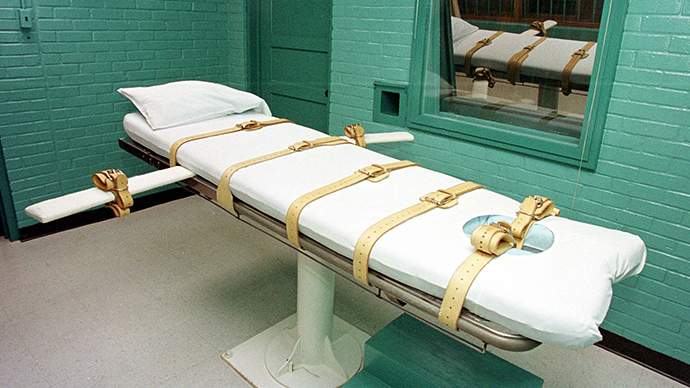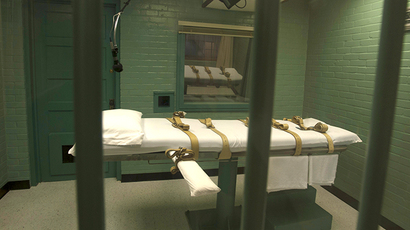US executes 2 with secret drugs first time since Oklahoma botched injection

Less than two months after a nationwide scandal triggered by a botched Oklahoma execution, two death row inmates have been executed in the US with unidentified drugs.
59-year-old Marcus Wellons was executed Tuesday night and pronounced dead at 11:56 pm, with the procedure going smoothly.
Wellons was convicted and sentenced to death in 1993 for the 1989 murder of his 15-year-old neighbor, India Roberts, a high school sophomore from the Atlanta suburbs, whom Wellons raped and strangled.
Wellons was executed using a single drug, which was not disclosed, AP reported. Last month the Georgia Supreme Court upheld a state law giving authorities the right to keep execution drugs secret.
Shortly afterward Wellons, Missouri inmate John Winfield was put to death for shooting dead two St. Louis County women in 1996. One more woman survived his attack but was left blinded.
Lawyers for the two death row inmates appealed to the US Supreme
Court but their appeals were rejected.
Another Death Row convict in Florida, John Ruthell Henry, was set
to be executed in a 24-hour period.
All three states refuse to declare the source of the drugs for the lethal injections, or if they have been tested.
Just a week ago, the US Supreme Court denied an appeal from a Texas death row inmate whose lawyers called for state officials to reveal the source of drugs intended to execute him.
Nine executions across the nation were postponed since April when Oklahoma’s botched execution of Clayton Lockett who died of a heart attack some 40 minutes after the procedure begun – something that triggered a nationwide scandal and White House described as "inhumane."
"I think after Clayton Lockett's execution everyone is going to be watching very closely. The scrutiny is going to be even closer," Fordham University School of Law professor Deborah Denno, a death penalty expert, told AP.
In May, Republican Senator Paul Ray from Utah described the use of firing squads a form of execution in the US as “more humane.”
A report in May titled “Irreversible Error” stated that some chemicals used to execute death row inmates trigger such acute pain that veterinarians in some parts of the US are banned from using them to euthanize animals.















